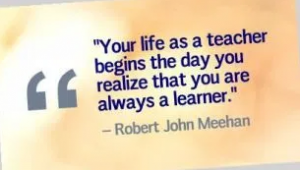If you Google translate English “teacher” to Norwegian you will get the word “Laerer”
If you Google translate English “learner” to Norwegian you will get the word “Laerer”
Wow! They are one and the same. The learner is the teacher – the teacher is the learner?
Recently I have been engaged in a national project, ‘teaching’ rural professionals how to facilitate learning in small groups. What I have learned myself through this experience is immeasurable. Over the last two years, I have had the privilege of leading the learning of over 600 people through the topic of helping others learn. And in the process, among other things, experienced:
• The power of context
• The wisdom of the crowd – in action
• The role of expertise
• Over 600 ‘learning styles’
• Collaboration of diverse minds
• How diversity can create the knowledge we need to face tomorrow’s problems
• Respect for different ways of thinking
In another setting, we have been working with a school who are introducing project-based learning into their curriculum. This is where the students take ownership of what they’re learning by choosing a project that interests them. They learn to problem-solve, do research and find information. Subjects like literacy and numeracy are integrated into their pursuit of the project goals. When we asked the teachers about their initial experiences we heard comments like;
“ I am developing such close relationships with my students”.
“ We are learning together”.
“They come to me for advice when they have exhausted their own enquiry and the ideas of their peers.”
We live in a wildly accelerating world of knowledge creation. What we knew yesterday is ‘bollocks’ tomorrow. Not always because it isn’t ‘true’ but often because it’s no longer relevant.
So, the teacher is the learner and the learner is the teacher. The teacher knows the answers to yesterday’s questions, the learner knows the questions to tomorrow’s answers.
How do we navigate this new world? Perhaps it’s not so new. Maybe it’s always been this way – it’s just that many of us haven’t embraced it yet. All we need to do is run with it and enjoy the freedom of not having to know it all.
For the last word on this, let’s go back to Scandinavia and an old Havamal (Viking) poem which says, “Beware the half-wise they are everywhere”.
Have a great Christmas from the Bats Team, Lab and Mary Wilson.






Leave A Comment